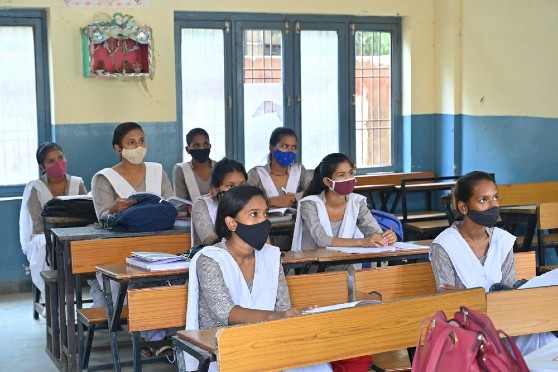Every added year of education ups future income by 6.7 per cent: Study


Here’s why India needs to invest more on educating its youth. A new national study has found that every added year of education in India shoots up a person’s average income by about 6.7 per cent.
The study ̶ commissioned by Population Foundation of India, an organisation formed in 1970 under the leadership of the late JRD Tata ̶ elucidates on why the government needs to invest in the health, education and well-being of the country’s youth. The study was conducted by research organisation Institute for Competitiveness.
The findings of the study, titled “Investing in Adolescents: A Case for India”, were released on November 15 by Bibek Debroy, chairman of the Prime Minister’s Economic Advisory Council.
“Beyond 2035, or thereabouts, India will begin to age. Even more important that we get our policies on these people who are entering the labour market right,” said Debroy, lauding both the organisations for the extensive report.
Through secondary data analysis, the study found that every additional year of education in India increases a person’s average income by about 6.7 per cent.
“This return is higher for girls than boys. Each additional year of education yields an 8.6 per cent increase in women’s monthly wages, while for men the number stands at 6.1 per cent,” said the findings.
This means that every rupee invested towards completing school education is likely to bring in a dividend of between Rs 4.5 and Rs 8.2 in an individual’s future earnings.
Poonam Muttreja, the executive director of the Population Foundation of India, reiterated the need for the government to join hands with the civil society and actively strive towards the development of adolescents.
“At PFI, we are engaging with a range of ministries that work on young people’s issues. We are also in an ongoing conversation with NITI Aayog to develop a five-year action plan on adolescents. And this report is going to contribute significantly to that,” said Muttreja.
She added that it is crucial to include the voice of the youth in any policy vision about their future, citing extensive interactions the organisation has had with adolescents.
The Institute for Competitiveness, India conducts and supports indigenous research; offers academic and executive courses; apart from providing advisory services to corporates and governments.